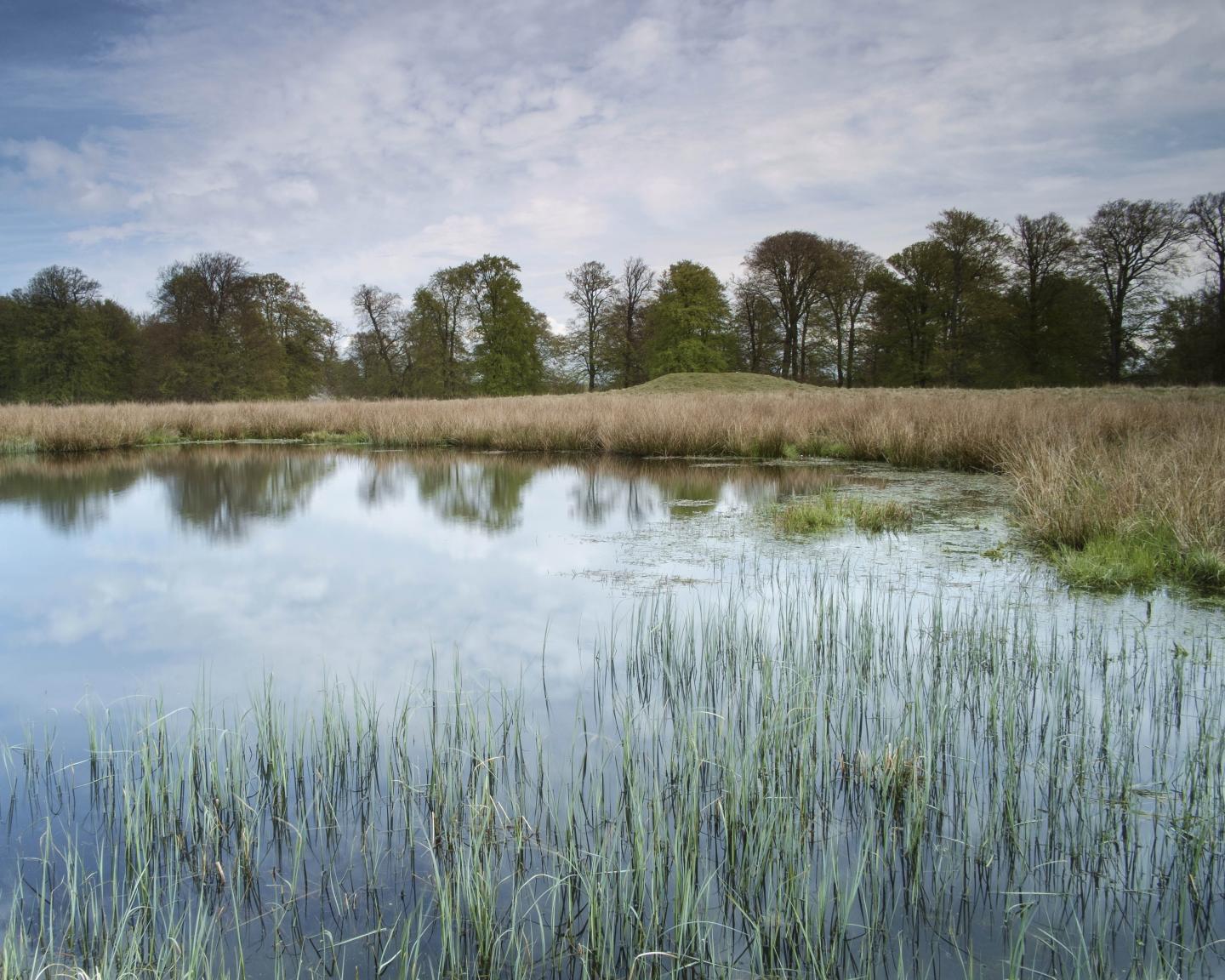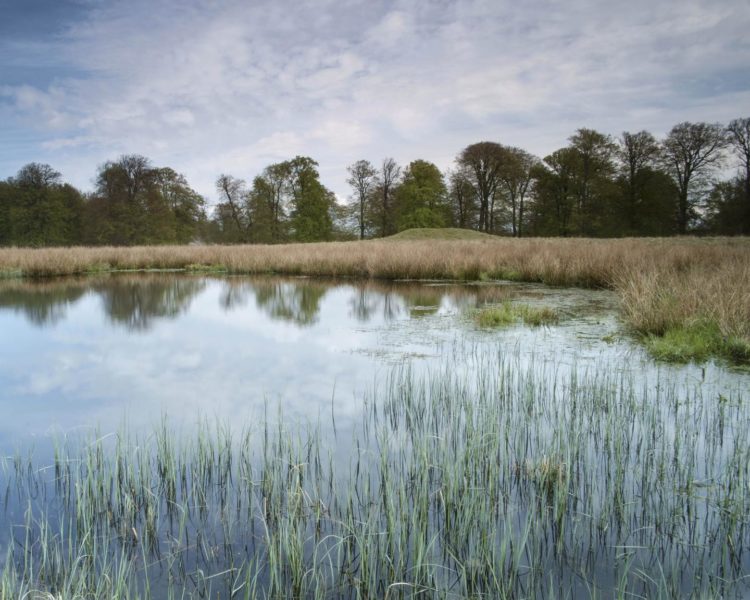Runoff from soils and surrounding environments provide life-sustaining carbon

Credit: Lars Iversen
All plants need carbon dioxide, or CO2 to live. They extract it from the air and use it during the photosynthesis process to feed themselves.
But what happens to aquatic plants? How do they get carbon dioxide?
Some have partial terrestrial forms, such as floating leaves or above water growth, which allows them to use carbon dioxide from the atmosphere. But for plants that live completely submerged in water, CO2 is limited and many of these plants have developed a mechanism to tap into other carbon sources. In this case, they extract it from bicarbonate — a naturally occurring mineral that comes from the weathering of soils and rocks and the runoff reaches the plants.
In a paper published today in Science, researchers from Arizona State University School of Life Sciences found that not only are freshwater aquatic plants affected by climate, they are also shaped by the surrounding landscape.
“In this study, we’re able to show that yes, when in an environment where carbon dioxide is limited, then plants use strategies to extract carbon from bicarbonate,” said Lars Iversen, principal investigator for the study and a research fellow at the School of Life Sciences. “We see this in local rivers and lakes, but we also see this across the globe. We have identified patterns across ecoregions and there’s a direct link between the availability of catchment bicarbonate and the ability of aquatic plants to extract carbon from that bicarbonate.”
The study, which focused specifically on aquatic plants that live completely submerged, also showed that when plants have easier access to carbon dioxide, they will use that as their carbon source, even if bicarbonate is available.
“One of the main points of this study is that aquatic plants are different. We cannot use our extensive knowledge about terrestrial plants in the same way as aquatic plants,” said Iversen, a researcher in Assistant Professor Ben Blonder’s ecology lab. “This is really important because on a global scale, at least one-third of the human population is very closely linked to freshwater systems. So things like deltas, drinking water, and fishing grounds are critical to human survival. If we are to understand how these systems will persist and change within the next 100 years, then we really need to know how some of the main components and structures in freshwater systems are working.”
Environmental changes caused by human activity, such as deforestation, land cultivation, and the use of fertilizers, are causing large increases in bicarbonate concentrations in many freshwater bodies around the world. Iversen said the insight from this study will help researchers evaluate how ecosystem functions change if concentrations of bicarbonate increase.
###
Media Contact
Sandra Leander
[email protected]
480-965-9865
Original Source
https:/
Related Journal Article
http://dx.





